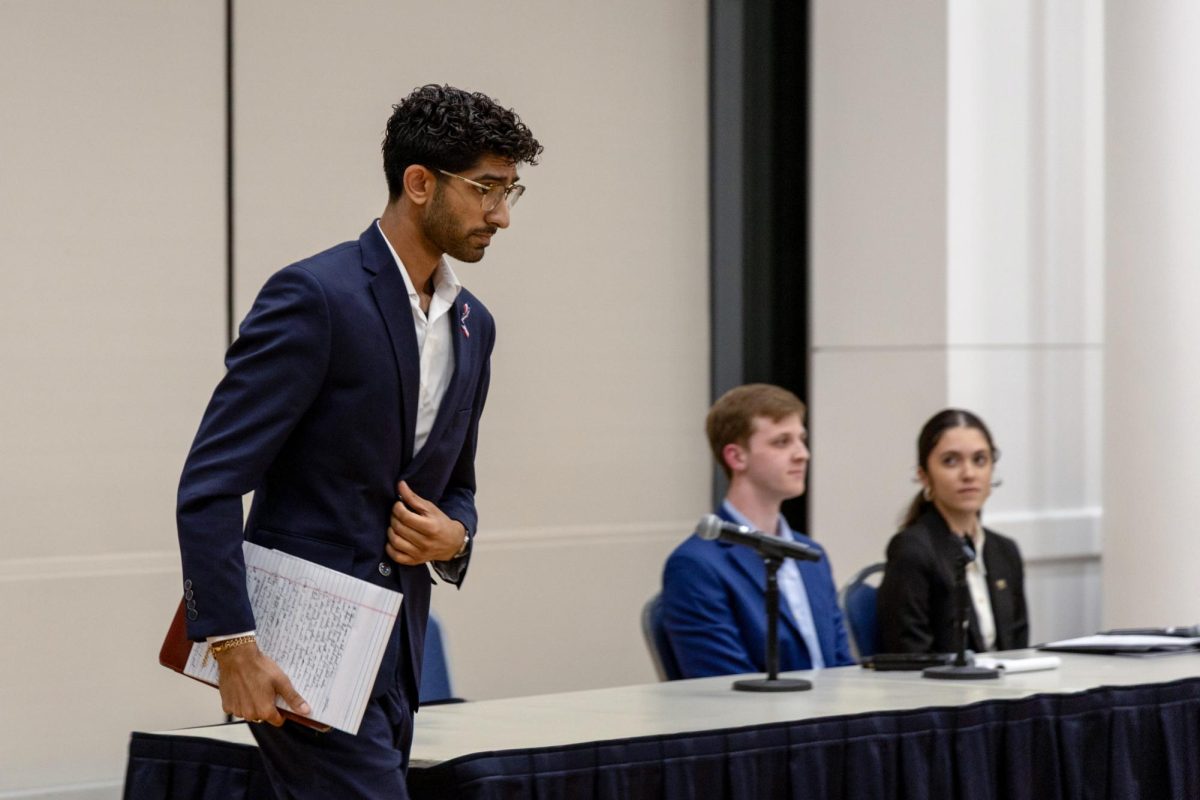Updated: Feb. 28, 2019 at 3:22 p.m.
Leaders of the Interfraternity Council are trying to mitigate the risks chapters face during social events and everyday operations.
The IFC hosted its first roundtable discussion on Sunday where designated members in each chapter will meet every other week to informally discuss risk management topics like mental health awareness and sexual assault prevention. IFC President Jared Levinson said the discussions will ensure chapters are consistent when enforcing requirements like mandating sober monitors at social events and banning hard alcohol in fraternity houses.
“We’re dealing with real, salient issues that often carry a big weight,” Levinson said. “The action needs to come forth, and we want to make sure the action comes through those discussions.”
Levinson said each chapter can delegate as many members as they want to attend the conversations, and attendees can relay topics discussed to other members of their fraternities at their respective chapter meetings. The first few meetings will focus on the way different chapters can designate sober monitors for social events, which IFC leaders said they have discussed for years but members of the Panhellenic Association’s task force on sexual assault formally recommended in 2017.
He said he also wants to discuss how chapters can uniformly implement a hard alcohol ban, which does not allow fraternities to house beverages with more than 15 percent alcohol. The requirement will be mandated for all fraternities by the North-American Interfraternity Conference starting Sept. 1.
Levinson also spoke with Jennifer Alexander-Smith, the associate director of the Office of Student Rights and Responsibilities, about the ways IFC can enforce the ban and plans to discuss the new policy with chapter leaders, he said.
“With any major shift and change, you’re going to have slip-ups, and we want to try to mitigate those,” he said. “Roundtables are an effective forum where chapter leadership can talk to us on where we’ve fallen short and how can the IFC support chapter leadership.”
Levinson said he wants the discussions to outlive his tenure at the end of the calendar year, and he anticipates that chapters will continue to hold similar conversations under new leadership next year.
“There’s a lot on the table here,” Levinson said. “We never really set this time aside beforehand, so now we can really condense that big overwhelming bubble to become some effective talks on these issues.”
Will Copeland, the president of Delta Tau Delta, said he wants the conversations to tackle how fraternities can help curb sexual assault. He said discussing a sober monitor requirement could clarify how a designated person can help prevent unwanted sexual behavior and intervene instead of allowing assault to occur by not responding.
Copeland said several members of his fraternity, including himself and the director of risk management, will attend the meetings and pass along information from the discussions to members of his chapter, which meets later in the day on Sundays.
“We’re meeting every two weeks, so it gives really more time than the IFC has ever set aside to talk about these issues and how best to address them as a community because then, they can trickle down,” he said.
Rheise Berro, the president of Kappa Alpha, said his chapter will send the fraternity’s risk manager to the discussions. The manager will bring talking points from the conversations back to the chapter, Berro said.
“The purpose of the roundtable discussion is to strategize, as a collective whole, risk management,” Berro said in an email. “By having each fraternity meet as a whole, we hope to share all our good ideas.”





